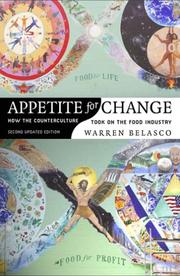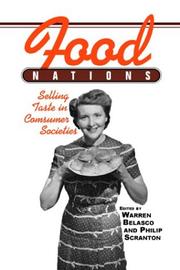| Listing 1 - 7 of 7 |
Sort by
|

ISBN: 0262021234 Year: 1979 Publisher: Cambridge MIT press
Abstract | Keywords | Export | Availability | Bookmark
 Loading...
Loading...Choose an application
- Reference Manager
- EndNote
- RefWorks (Direct export to RefWorks)
Automobile travel --- -Motels --- -Tourist camps, hostels, etc --- -Hostels --- Tourist courts --- Tourist homes --- Camp sites, facilities, etc. --- Hotels --- Lodging-houses --- Youth hostels --- Auto courts --- Motor courts --- Motor hotels --- Motor inns --- Motor lodges --- Automobile touring --- Automobile traveling --- Automobiles --- Automobiling --- Touring, Automobile --- Traveling by car --- Travel --- History --- Touring --- Traveling --- Motels --- Tourist camps, hostels, etc. --- History. --- -History --- Tourist camps, hostels, etc --- Hostels --- CDL --- 94

ISBN: 0520241517 0520250354 9780520241510 9780520250352 9780520241510 9780520250352 9786611752552 0520940466 128175255X 0520904001 9780520940468 9781429467414 142946741X 9780520904002 Year: 2006 Publisher: Berkeley University of California Press
Abstract | Keywords | Export | Availability | Bookmark
 Loading...
Loading...Choose an application
- Reference Manager
- EndNote
- RefWorks (Direct export to RefWorks)
In this provocative and lively addition to his acclaimed writings on food, Warren Belasco takes a sweeping look at a little-explored yet timely topic: humanity's deep-rooted anxiety about the future of food. People have expressed their worries about the future of the food supply in myriad ways, and here Belasco explores a fascinating array of material ranging over two hundred years-from futuristic novels and films to world's fairs, Disney amusement parks, supermarket and restaurant architecture, organic farmers' markets, debates over genetic engineering, and more. Placing food issues in this deep historical context, he provides an innovative framework for understanding the future of food today-when new prophets warn us against complacency at the same time that new technologies offer promising solutions. But will our grandchildren's grandchildren enjoy the cornucopian bounty most of us take for granted? This first history of the future to put food at the center of the story provides an intriguing perspective on this question for anyone-from general readers to policy analysts, historians, and students of the future-who has wondered about the future of life's most basic requirement.
Food. --- Food supply. --- Food --- Food supply --- Diet & Clinical Nutrition --- Health & Biological Sciences --- History --- Social Sciences and Humanities. Development Studies --- History. --- Food Policy --- Food Policy. --- 651 Maatschappij. Algemeen --- voedsel --- Food control --- Produce trade --- Agriculture --- Food security --- Single cell proteins --- Food supply.. --- Food -- History. --- 20th century american culture. --- 20th century american food history. --- american studies. --- cooking. --- culinary. --- disney amusements parks. --- disney world. --- disneyland. --- dystopia. --- farmers markets. --- food and innovation. --- food and technology. --- food security. --- food supply. --- food writings. --- food. --- future of food. --- futuristic films. --- futuristic novels. --- gastronomy. --- genetic engineering. --- gmos. --- human anxiety. --- humanity. --- organic foods. --- restaurants. --- social anxiety. --- supermarkets. --- utopia.

ISBN: 0801473292 9780801473296 Year: 2007 Publisher: Ithaca (N.Y.) Cornell University Press
Abstract | Keywords | Export | Availability | Bookmark
 Loading...
Loading...Choose an application
- Reference Manager
- EndNote
- RefWorks (Direct export to RefWorks)
Consumers --- Food industry and trade --- Natural foods industry --- Subculture
Book
Year: 1979 Publisher: Cambridge (Mass.), London MIT Press
Abstract | Keywords | Export | Availability | Bookmark
 Loading...
Loading...Choose an application
- Reference Manager
- EndNote
- RefWorks (Direct export to RefWorks)
Book
Year: 1979 Publisher: Cambridge Mass. - London MIT Press
Abstract | Keywords | Export | Availability | Bookmark
 Loading...
Loading...Choose an application
- Reference Manager
- EndNote
- RefWorks (Direct export to RefWorks)

ISBN: 9780415930772 Year: 2002 Publisher: New York (N.Y.) Routledge
Abstract | Keywords | Export | Availability | Bookmark
 Loading...
Loading...Choose an application
- Reference Manager
- EndNote
- RefWorks (Direct export to RefWorks)
Book
ISBN: 1283896311 0812204441 0812221346 0812241282 Year: 2009 Publisher: Philadelphia : University of Pennsylvania Press,
Abstract | Keywords | Export | Availability | Bookmark
 Loading...
Loading...Choose an application
- Reference Manager
- EndNote
- RefWorks (Direct export to RefWorks)
In recent years, the integrity of food production and distribution has become an issue of wide social concern. The media frequently report on cases of food contamination as well as on the risks of hormones and cloning. Journalists, documentary filmmakers, and activists have had their say, but until now a survey of the latest research on the history of the modern food-provisioning system-the network that connects farms and fields to supermarkets and the dining table-has been unavailable. In Food Chains, Warren Belasco and Roger Horowitz present a collection of fascinating case studies that reveal the historical underpinnings and institutional arrangements that compose this system.The dozen essays in Food Chains range widely in subject, from the pig, poultry, and seafood industries to the origins of the shopping cart. The book examines what it took to put ice in nineteenth-century refrigerators, why Soviet citizens could buy ice cream whenever they wanted, what made Mexican food popular in France, and why Americans turned to commercial pet food in place of table scraps for their dogs and cats. Food Chains goes behind the grocery shelves, explaining why Americans in the early twentieth century preferred to buy bread rather than make it and how Southerners learned to like self-serve shopping. Taken together, these essays demonstrate the value of a historical perspective on the modern food-provisioning system.
Food industry and trade. --- Food supply. --- Food consumption. --- Food --- Consumers' preferences. --- Marketing. --- American History. --- American Studies. --- Business. --- Economics. --- History.
| Listing 1 - 7 of 7 |
Sort by
|

 Search
Search Feedback
Feedback About UniCat
About UniCat  Help
Help News
News